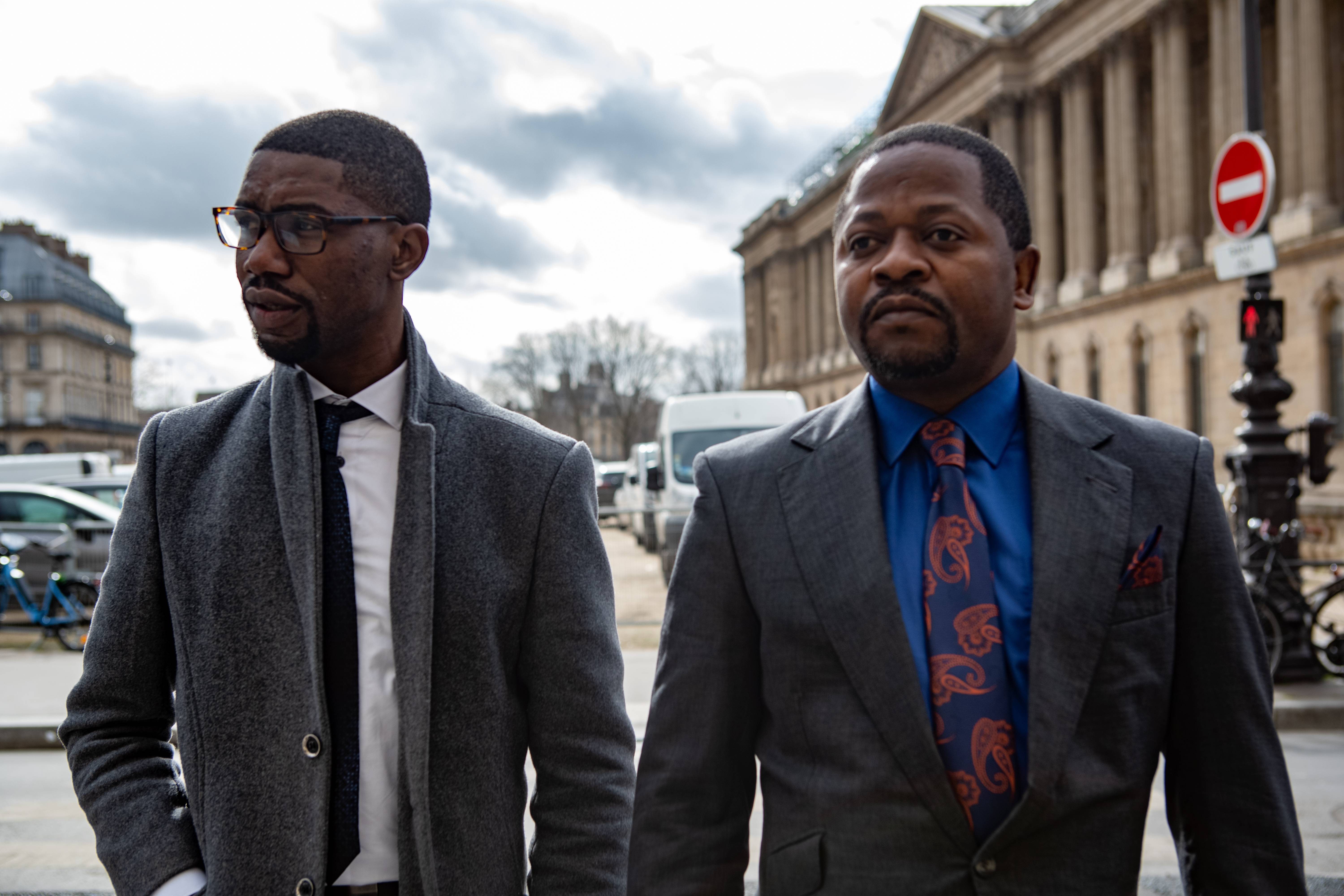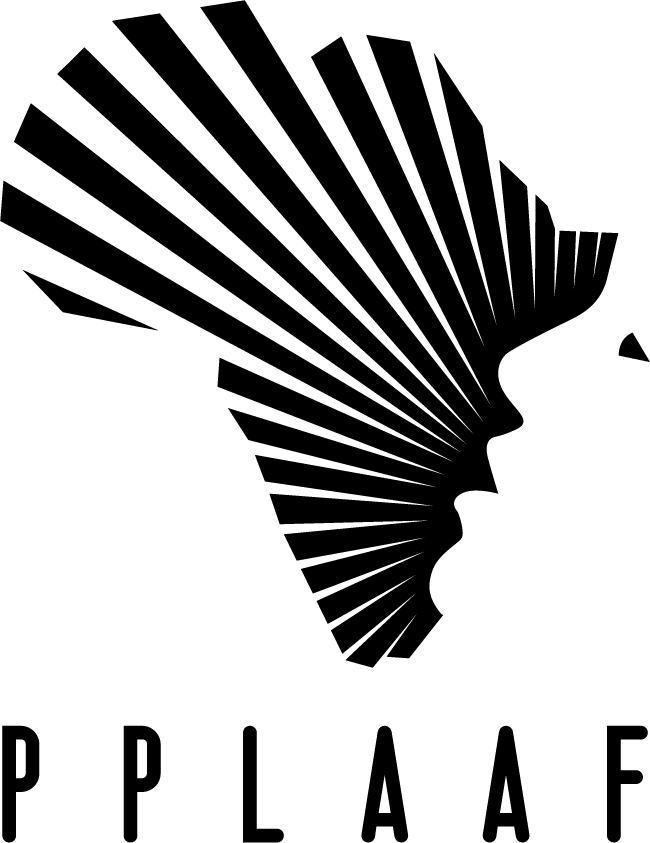Revelations about a Congolese bank and a sanctioned businessman lead to a wave of attacks targeting the defenders of public interest.

(Paris, March 4th, 2021) – Investigations made public recently by media and NGOs, based on documents transmitted by courageous whistleblowers, have provoked a wave of retaliatory acts of rare intensity, the Platform to Protect Whistleblowers in Africa (PPLAAF) said today. These attacks reached a climax when a death sentence for the whistleblowers was handed down by judges in the Democratic Republic of Congo (DRC) following a farcical process.
These actions expose the extreme discomfort that the revelations have caused to the parties that have been exposed. These parties, instead of responding on the merits, sought a death sentence for Congolese citizens acting in the public interest, have intimidated and threatened journalists and NGOs, and have obsessively spread false information on social networks.
“PPLAAF condemns in the strongest terms these methods which aim to impede freedom of expression and suppress the voices of those fighting corruption in the DRC and elsewhere,” said Henri Thulliez, Director of PPLAAF. “The obvious aim is to prevent Congolese and international public opinion from having access to tangible information about the actions of those who, through their systematic predation, plunder Congo’s resources.”
PPLAAF has been supporting for months Mr. Navy Malela and Mr. Gradi Koko, the whistleblowers who were sentenced to death during a fraudulent trial, and will continue to support and defend them in the face of reprisals until the full facts of the activities they denounce are made public.
On 26 February 2021, these two Congolese whistleblowers revealed that they were the source of the investigations that led to the publication of the report “Undermining Sanctions” and investigative articles published last July by Le Monde, Bloomberg and Haaretz. Since then, journalists have continued to analyse documents handed over by the two whistleblowers. Further articles were published at the end of February in RFI, Bloomberg, Africa Confidential, Haaretz and Mail and Guardian.
Navy Malela and Gradi Koko worked for several years in the audit department of Afriland First Bank, the Congolese subsidiary of a Cameroonian bank. Faced with the magnitude of the embezzlement they witnessed, they blew the whistle internally and then, facing threats and a lack of remedial action by their superiors, forwarded incriminating documents to NGOs and journalists. Both whistleblowers were so outraged by these attacks on the Congolese public interest that they took enormous risks to their personal safety and that of their families.
Investigations based on the bank documents show that mining magnate Dan Gertler benefited from an apparent money-laundering network to circumvent U.S. sanctions. Afriland Bank appeared to play a central role in these mechanisms. In 2017, the United States sanctioned Dan Gertler, a close friend of former DRC President Joseph Kabila, for his “opaque and corrupt mining and oil deals.” On January 15, 2021, the Trump administration quietly granted a license allowing Gertler and his companies access to the U.S. financial system until January 31, 2022, drawing criticism from U.S. congressional members and some 30 Congolese and international NGOs.
Investigations also show that the bank harbored accounts for North Korean individuals allegedly acting on behalf of their country, and for companies sanctioned by the U.S. for their proximity to Hezbollah. It also indicates that Congolese politicians and public institutions were conducting fraudulent transactions at the bank.
The revelations have led to an unprecedented wave of reprisals against the whistleblowers, journalists and NGOs.
A monstrous and fraudulent death penalty
On 25 February 2021, the day before the publication of the latest revelations, Afriland’s lawyers (including the French lawyer Eric Moutet, who was previously a member of the board of directors of Sherpa, a French anti-corruption NGO set up by William Bourdon and presented himself in his interactions with the parties and the media as Dan Gertler’s lawyer) held a press conference in Kinshasa where they revealed that the two whistleblowers had been sentenced to death by a Kinshasa court in September 2020, on top of being given prison terms for no less than eight different counts.
This judgment appears to be fraudulent in many respects, as RFI has already noted:
- Two parallel proceedings were brought against the two whistleblowers, before the same court and before the same trial panel.
A first procedure (numbered 27.012) was initiated by two direct summonses sent by Afriland via a French bailiff to the headquarters of PPLAAF. The summonses targeted the two whistleblowers and repeated the same allegations peddled by the bank, Dan Gertler, and their representatives over the course of several months. These summonses were irregular in many aspects, notably because such a summons cannot be sent to the headquarters of an association or a law firm. It is useful to note that in June 2020, Dan Gertler’s lawyers and the bank showed PPLAAF documents prepared by private investigators indicating they knew the address at the time of at least one of the whistleblowers, so they could have sent him a regular summons. Sending a summons to PPLAAF headquarters was just another attempt at intimidation.
Crucially, the summonses did not include charges punishable by death.
PPLAAF nevertheless hired a Congolese lawyer, Mr. Jean-Marie Kabangela Ilunga, to be represented before the Gombe Tribunal (Kinshasa) at the hearing of 7 September 2020 to inform the Court of the irregularity of the summons, but the hearing was immediately postponed due to the absence of Afriland representatives.
On the same day, a second hearing was held before the same trial panel, this time with Afriland’s lawyers present but not PPLAAF’s lawyer, who had not been informed of this hearing. This procedure is numbered 27.071. In this second procedure, the whistleblowers were listed as living in DRC, not as being resident in Europe. Indeed, the procedure was based on direct summonses allegedly sent to the Kinshasa homes of whistleblowers. The whistleblowers were of course absent, having lived by then in Europe for several months (as it is expressly written in the summons), so the direct summonses were only signed by so-called “neighbours”. Documents only indicate the first name of these alleged neighbours.
However, it was during this irregular procedure that the court concluded that the two whistleblowers should be sentenced to death.
- There are two different versions of the judgement.
During the most recent investigations by journalists, Dan Gertler and Afriland reiterated that the two whistleblowers had been sentenced to death. Numerous requests to be provided with an authentic copy of the judgement went unanswered. Similarly, PPLAAF’s lawyer, Mr. Jean-Marie Kabengela Ilunga, has repeatedly sought the judgement, to no avail. Following the press conference held by Afriland’s lawyers, a copy of the judgement was posted online and shared on social media. This judgement condemns the whistleblowers for theft, forgery, private corruption, breach of professional secrecy and association of criminals, and acquitted them of the accusations of slanderous denunciation, breach of trust and concealment.
This version of the judgement is different to that finally given by the bailiff of the Gombe Court to PPLAAF’s lawyer on 1 March 2021. This version finds the whistleblowers guilty of theft, private corruption, breach of professional secrecy and association of criminals and acquitted them of forgery and the use of forged documents, slanderous denunciation, breach of trust and concealment.
Both versions of the judgement are stamped with the seal of the same clerk.
According to RFI reporter, an investigation was opened by the Kinshasa-Gombe Tribunal on 2 March 2021 after the publication of a false judgement, apparently referring to the judgement posted online shortly after the Afriland lawyers’ press conference.
- Both judgements condemn the whistleblowers to sentences not provided for by the Congolese Criminal Code.
The Whistleblowers were sentenced to “four years of criminal servitude for breach of professional secrecy”, while Article 73 of the criminal code provides for sentences of “one to six months of criminal servitude” for the disclosure of professional secrecy.
The whistleblowers were sentenced to death under Article 156 of the Criminal Code. This article is titled “Offence against Public Security”, suggesting that the interests of Afriland and those of the Congolese state are intertwined. Moreover, only the representative of the State may trigger the prosecutions on the basis of article 156.
- There are false allegations in the judgement.
Some of the facts presented in the judgement are completely false, and the lawyers for Afriland and Dan Gertler lawyers have been informed of this when making similar erroneous allegations in the past. For example, in June 2020, PPLAAF and Global Witness informed them that their accusations against Carina Terstakian, a former Global Witness researcher, were entirely false, as she had never investigated Dan Gertler and left the organization in 2009.
Any evidence or purported evidence to the contrary is therefore necessarily false.
The sentence was decided despite a moratorium on the death penalty, which has been in force in the DRC for almost 20 years.
The whistleblowers were not served this judgment. Therefore, it cannot be executed as it is.
In addition, the Public Prosecutor’s Office is obliged to appeal this sentence under Article 175 of the Judicial Organization Order, which states that “The Public Prosecutor’s Office shall be obliged to exercise his recourse for all intents and purposes, whenever the accused has been sentenced to death or criminal servitude in life.”
This outrageous judgement was condemned by the United Nations Joint Office for Human Rights in the DRC, as well as by the embassies of Belgium, France and the United States. At least two MEPs also expressed support for Gradi Koko Lobanga and Navy Malela.
“When one unmasks the world”s largest corruption networks, the response can be extremely violent. We call on the Congolese judicial authorities to overturn this unfair judgment, issued following a travesty of a trial against these whistleblowers,” said William Bourdon, President of PPLAAF, and Henri Thulliez, director of PPLAAF.
Retaliation against the father of one of the whistleblowers
In the last few days, the bank appears to have also intimidated one of the whistleblowers’ relatives.
The father of Mr. Gradi Koko Lobanga, who is also an employee of an Afriland branch, was summoned to the bank’s headquarters on 1 March 2021. In a meeting with the bank’s directors and lawyer and a few “journalists”, he was put under significant pressure to refute his son’s claims. This interview was reportedly recorded.
He was summoned again on 2 March and 4 March 2021.
“When you cannot disprove serious accusations and you cannot silence a brave whistleblower, you go after the family. These are undignified methods,” said William Bourdon and Henri Thulliez, respectively PPLAAF’s president and director.
Threats and blackmail against the media and NGOs
In addition to these acts of retaliation, extraordinary attempts at intimidation took place before the most recent publications in an effort to stop them being published or to discredit them.
The president of PPLAAF, William Bourdon, had told Mediapart as early as July 2020 that he had been the subject of attempted blackmail by Mr. Dan Gertler’s lawyers, who threatened a public smear campaign, including the threat to publish a recording of Mr Bourdon, made in his law firm a year earlier under fraudulent conditions.
William Bourdon was also contacted numerous times by an Israeli media outlet, Yediot Aharonot, in the days leading up to the publication of the report in July. This media outlet made the same absurd allegations made by Gertler’s lawyers and some online defamatory videos, threatening to publish investigative articles, before abruptly stopping the correspondence.
The day before the report was published on 1 July 2020, the main bank under investigation, Afriland, filed a complaint against PPLAAF and Global Witness before the Paris prosecutor’s office. It followed a threat made by Dan Gertler through his lawyers, including the London law firm Carter-Ruck, who specifically raised the possibility of filing such a criminal complaint on 11 June 2020. This criminal complaint includes the main allegations contained in the direct summonses sent to PPLAAF’s headquarters and in the DRC judgement of 23 September 2020.
Finally, on 2 October 2020, three lawyers in France who advertise their apparent commitment to human rights announced that they had filed three civil suits for defamation against PPLAAF and Global Witness: Emmanuel Daoud (one of the lawyers of the International Federation for Human Rights), a lawyer for Dan Gertler; Eric Moutet (former anti-corruption lawyer and former member of Sherpa’s board of directors), a lawyer for Afriland; and Patrick Klugman (former deputy mayor of Paris, in charge of international relations and Francophonie), a lawyer for two individuals mentioned in the investigations (Mr. Elie Berros and Ruben Katsobashvili).
These procedures have been strongly denounced by 48 organizations protecting whistleblowers, the press and human rights.
Investigative journalism against mass fake news
These complaints and revelations were accompanied by a defamatory campaign against PPLAAF, Global Witness and journalists on social media. Videos and other content published as part of this campaign include recordings that Mr. Gertler and his representatives had threatened to release if the report was published.
In recent days, a Youtube channel that was named after the organization Transparency International was able to broadcast paid advertisements (they have been viewed tens of thousands of times) in the form of defamatory and grotesque videos against PPLAAF, Global Witness and the whistleblowers.
These attacks are a crude and malicious campaign, aimed at distracting public opinion and exhausting those who are fighting for the public interest. The bank and the businessmen involved are accused of extremely serious money laundering. Instead of responding substantively to these investigations, considerable resources are being spent on attempts to intimidate and to spread false information that is harmful to the public interest.
As for the judicial proceedings, their real aim is obviously not to convict journalists or organizations but to harass them, drive them to self-censors, discredit their words and divert public attention from the extreme gravity of the published facts.
PPLAAF remains confident that these revelations about extremely serious matters will lead to investigations and sanctions, show the need to reform the Congolese and international financial system, and – above all – encourage other Congolese citizens to denounce the corruption that plagues their country.
This attack shows once again that courageous Congolese citizens are willing to do anything to fight corruption and defend the interests of their country. They should be celebrated, thanked and not condemned.
PPLAAF and William Bourdon have instructed their lawyers to initiate any proceedings available to put an end to these acts and to ensure that those responsible for all these offenses are punished and convicted, both in France and abroad.
PPLAAF is a non-governmental organization established in 2017 to protect whistleblowers, as well as to advocate and engage in strategic litigation on their behalf when their revelations deal with the general interests of African citizens




